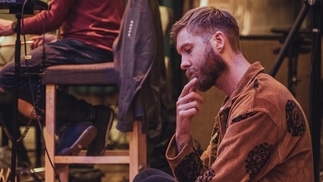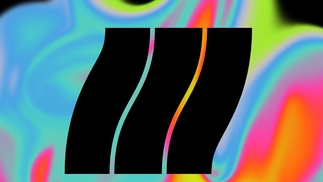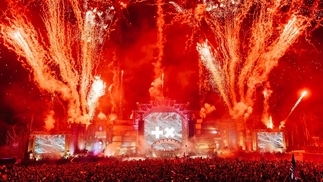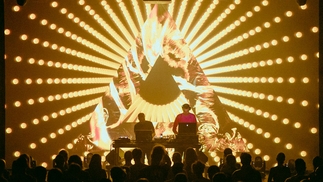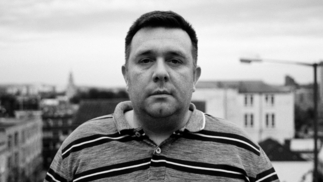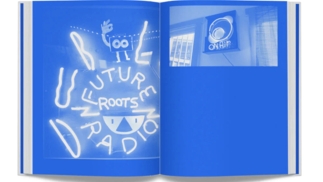Hot Seat: Mistajam
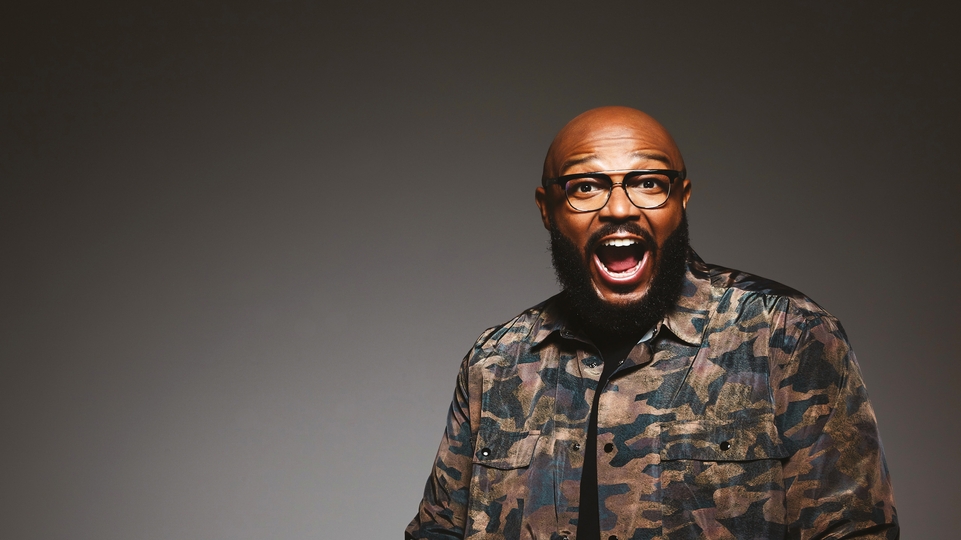
We throw a few curveball questions the way of MistaJam
Since the start of October last year, MistaJam has been the public face of Capital Dance, the new 24-hour national dance music station. His flagship show is 4-7pm from Tuesday to Saturday, with the Capital Weekender also broadcasting on Capital on Fridays and Saturdays too. It’s the latest challenge for the DJ who spent 15 years at BBC Radio 1 and 1Xtra, becoming one of Britain’s best-loved dance music broadcasters in the process.
Growing up, Jam blagged a show on pirate radio in his home city of Nottingham at 14, and then on Nottingham Trent University’s Fly FM — which had a limited FM license — while he was doing his GCSEs.
A chain of fortuitous events led to him getting a 1Xtra show a few years later, which led on to Radio 1, Dance Anthems, and becoming a mainstay. Now at Capital Dance, MistaJam is involved behind the scenes “across the board”, he tells DJ Mag. “Looking at the music policy and being part of the playlist team, helping to make decisions, helping to steer the ship, helping to guide things to where I hope they can go. I think we’ve got an opportunity here to build something for dance music that’s never been done before.”
Do you think the medium of radio has really come into its own again during the pandemic?
“I think so. A few years ago there was the story that radio was over, it was done — and now streaming companies are starting radio stations. Personally, I think there’s no other medium like it. Even with a live video stream, you’ve got to give it your 100% attention; you’re stood there watching a DJ do their thing, and there’s a screen between you and the DJ.
"But with radio, it’s really intimate. It’s either your voice directly into someone’s ears as they’ve got earphones in, or it’s you talking to that person and you’re in the background and they can dip in and engage, and they know that you’re there. Live radio is what people are connecting to, and at a point where we’re being told that we have to self-isolate, it’s quite easy to fall into that trap of being alone. If you’ve got the radio on you’re not gonna be alone, cos you know that somewhere there’s someone sat in the studio talking to you.”
What do you still love about radio?
“It just feels like it’s the medium for me, if I’m honest. I love being able to play music to people and know that it’s uplifting — whether it be a brand new record that I’ve just got that I know is gonna be amazing and I wanna introduce it to people, or it’s a classic, or if I know it’s gonna take people’s moods from where they were to where they could be after they’ve heard this record. I love that. And I love the fact that I’m able to do that on radio — and you ever know who’s listening.
“One of the things that touches me the most is that people are dancing at home — they’ve invested in disco balls, LED lighting and smoke machines and turning their sheds or front rooms into pubs and clubs on a Friday or Saturday night — it’s amazing.
“Don’t get me wrong, I adore performing, playing out, I adore clubs, and I can’t wait to get back into clubs to play sets. And when we do get back there, I don’t just wanna do an hour’s set again. Five hours please!”
Why did you leave the BBC last September?
“It was my time. I feel like I over-achieved at the BBC compared to where I probably should’ve got to. What do I mean by that? I’m a working class Black kid from Nottingham that grew up in council estates and started on pirate radio, didn’t go to university and just has a love and a passion, and learned on the job. Every time I achieved something it felt like there was a glass ceiling, and then I break the glass ceiling to find more glass. It got to a point, for me, where I was achieving everything that I was possibly being challenged to do and it was time for me to find a new challenge — because I’d pretty much done everything that I possibly could.
“When you’ve got Europe’s biggest commercial radio company saying, ‘How about starting something that we’ve never done before, that has never really happened before on this scale for commercial radio — or for radio full stop?’: who wouldn’t jump at an opportunity like that? 15 years feels like a perfect book-end, a fantastic way to say ‘You know what? I’ve served my apprenticeship now, it’s time to take what I’ve learned out into the real world’. It just seemed to happen at the right time. It’s not gonna be an overnight thing, but I think we’re just setting the foundations now at Capital Dance for something that I hope is gonna be a trans-generational powerhouse.”
Ooh, I like that phrase! You should put that on a jingle or something...
“To be honest, that’s what you’ve built with DJ Mag. People want to be in DJ Mag, people aspire to be on the cover or in the Best Of British or whatever. And that’s what we’re building with Capital Dance, we want producers to be able to have an outlet, to be able to make music that deserves to be played at 10am, rather than just at 10pm on some small random station. As much as I love what’s happening with the dance music scene as a whole and radio — there’s amazing community stations cropping up, internet stations — it needs also that national ‘big boy in the market’ thing to help push things forward. And show what the Americans have actually known for a little bit longer than us — that dance music has a place on a 24-hour national station. Capital Dance is about elevating.
“Whenever we’re listening to music we’re listening out for the energy, the musicality, what moves us emotionally. And if we’re doing the same thing for each other, I’m hoping we’ll all get through this pandemic.”
You’ve just done a tune with Arthur Baker, ‘Born To Be Wild’, but which of these was your collaborator Arthur Baker born to be — a) Wild, b) Grumpy, c) Legendary, d) Hairy, or e) Electro?
“All of the above [laughs]. In my 38 years on this earth, in my 23 years as a DJ, I’ve been able to meet some absolute proper fucking titans of this industry, and there’s only one who’s disappointed me — and I will never say this person’s name, cos I’m not the sort of person who will put negative energy out there onto the planet.”
Who was it then?
“I’m not going to say. Arthur Baker, like Nile Rodgers and these people who’ve helped be architects of the music we know and love, is just such a cool guy. He’s just proper cool. I’ve come to know Arthur a bit better recently, and he really is all of the above. He is such a legend. When it comes to politics, he’s such a grump. When it comes to music, he’s so passionate and knowledgable and driven — I get the feeling that he’s the same now as he would’ve been in 1979. That’s special, that’s what I aspire to be when I’m his age.”
